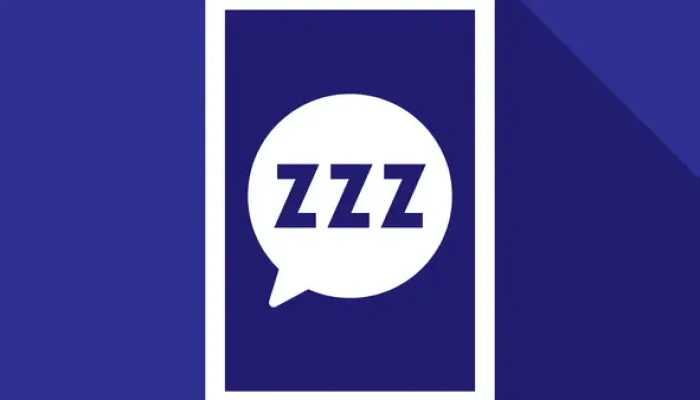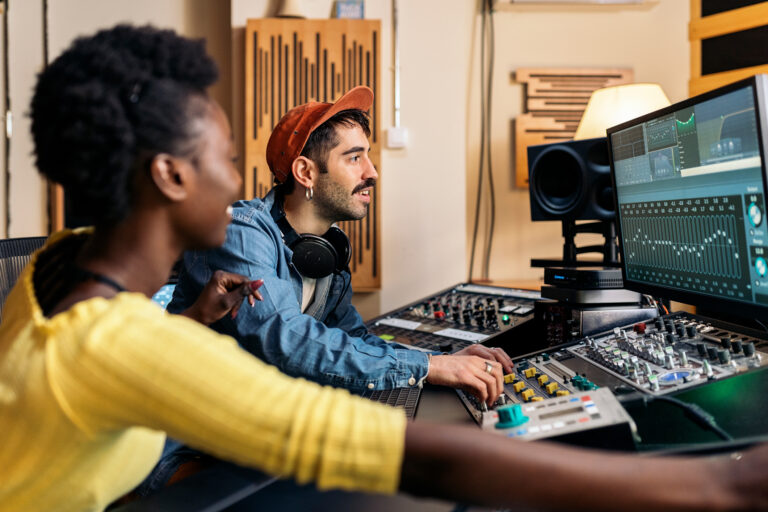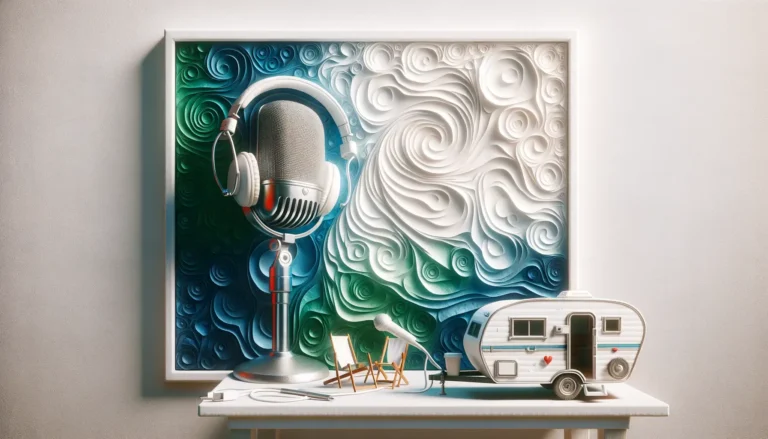For many brands, this scenario is more common than you think. Podcasting has exploded in the past decade, and many companies rushed in without much experience making audio. The result is a podcast they are less than proud of.
So how do you identify what’s wrong and get back on track?
Start with sound
To quote our head of audio production, Shawn Cole, “Almost every show in existence could be up to 20% more effective/ successful/ impactful if the audio quality was better.” A guest who keeps going off-mic, a host who sounds like they’re in an airport hangar, a computer fan whirring away during recording; if you listen to your podcast and this is what you’re hearing, improving the basic sound of your podcast is a great place to start.
Quality mics and audio software are widely available, and spending the time to coach guests and hosts on mic positioning and where to record can go a long way toward improving the overall quality of your show. We send USB microphones (and wired headphones) to all our guests to ensure we get the best possible recorded audio for every interview.
A professional sound designer can also do wonders for your show’s overall sound. They have a trained ear and are also experts in making the most of the audio experience by using music, editing, and sound effects to add mood and character to your show.
Recognize that hosting is hard
Have you ever watched the Olympics, or any professional sport, and thought about how easy the athletes make it look? After a while, it starts to seem normal that people are swimming at the same speed you can RUN. Great hosts and interviewers tend to have the same impact on our perception. They make hosting seem so natural, so effortless, we begin to think “How hard can it be?”
In reality, hosting is a skill built on hundreds of hours of preparation and practice, with teams of people supporting from behind the scenes. Just as you wouldn’t take a casual swimmer, put them in the Olympic finals, and expect them to win, if you’ve taken someone good at client presentations and put them at the center of your podcast, you can’t expect them to be a great interviewer.
Great interviewers have figured out the complicated craft of how to ask questions, watch the clock, push for detail, piece together a narrative and make the guest feel comfortable — all at the same time. Add to this the preparation BEFORE the interview, to understand the subject matter and the guest’s perspective, and it’s pretty obvious why doing great interviews is out of reach for many folks. Interviewing is a skill developed over time, and if your CEO hosts your podcast, it’s pretty likely they don’t have time to work on their interview skills.
Hiring an experienced interviewer to host your podcast is a straightforward fix, and there are plenty of experienced journalists and broadcasters out there who have the experience and the time.
If this is not an option, assess the skills your host does have. Are they subject matter experts, who are well-known among your target audience? Maybe you want to re-think your show format and make them part of a panel, to leverage their expertise. Are they good corporate communicators with no interview experience? Maybe you want to bring in an experienced co-host, to do interviews.
Making someone a great host — or even a good host — is about a lot more than giving them a script and a microphone. Just like Olympic athletes, hosts rely on preparation, persistence, and practice to win the day.
Whatever you do, don’t assume your podcast host will just get better at it on their own.
Do a program review
If your podcast is falling flat, it may be time to go back to basics. What is the show’s mission statement? What is your show like? Who is the audience you are trying to reach? What is the job you want your podcast to do for your listeners?
Once you’ve answered these questions, put together a group of people you trust, who is not involved in producing the show, and ask them to listen to a few episodes of your podcast. Then bring them together to answer a few questions about what they heard.
- Based on the episodes you listened to, how would you sum up what this show is about?
- How would you describe the show’s personality?
- Where did you lean in, and where did you drift off?
- After you listened, what were you left thinking about?
- Who would you recommend this show to?
The answer to these questions will tell you a lot about how people hear and perceive your podcast.
If there is a disconnect between the show you set out to make, and the show people are actually hearing, then you probably have some clues about why your podcast is failing.
At Pacific Content, we often hold internal show reviews when we’re developing new podcasts, as a gut check that the show we’re creating is being heard the way it is intended. The people doing the day-to-day work of producing the show can sometimes lose perspective on how the podcast sounds to others. A show review is a good way to critically assess what is hitting the mark and what may have gone off track.
It is never too late to make your podcast better. And taking the time to figure out what’s not working — and how to fix it — is a huge step toward making a show everyone can be proud of.
Sign up for the Pacific Content Newsletter: audio strategy, analysis, and insight in your inbox.





